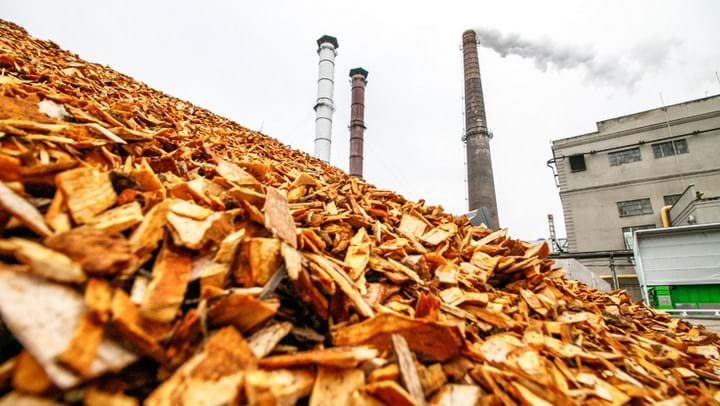Report assesses the role of biomass in meeting climate change targets in the UK

A REPORT by the Committee on Climate Change (CCC) has said that biomass has a role to play in a low-carbon economy, but only if sustainably sourced.
The report, Biomass in a Low-Carbon Economy, outlines both the benefits and potential negative impacts of using biomass. Sustainable biomass use could meet 5–15% of the UK’s energy demand by 2050. The report describes how future supplies of biomass can be sustainable, and how biomass should be prioritised for the most valuable end-uses.
Considering the complete life cycle
The report says that sustainable low-carbon bioenergy is possible, but only in certain circumstances if certain practices and criteria are applied. The complete life cycle of greenhouse gas emissions needs to be considered when evaluating different sources of biomass, as biomass has the potential to produce more emissions than fossil fuels. Examples include land which stores a high amount of carbon being converted into land for energy crops, high-carbon energy being used to process the biomass feedstocks, and the use of unsustainable and high-risk feedstocks such as slow-growing forests. Carbon stock changes are not currently counted when considering eligibility for government biomass subsidies.
The report recommends that these high emission and unsustainable biomass sources need to be regulated out and the weaknesses in considering carbon stocks need to be addressed. Most current uses of biomass don’t sequester carbon and are in sectors where there are often other viable low-carbon alternatives.
The report recommends that current biomass uses will need to change and that the government should encourage a transition away from the use of biofuels in road transport, biomass for heating buildings, and biomass used in power plants without CCS. Instead, priority should be given to the development of biofuels for the aviation industry, where other low-carbon alternatives don’t exist. Priority should also be given to options that don’t burn biomass, such as the increased use of timber in construction. The government should not provide further support to biomass plants that don’t use CCS, although existing subsidies for burning biomass should be honoured.
Storing more carbon
Increasing carbon stocks over time will require higher levels of afforestation. This would store an additional 21m tCO2eq/y by 2050 compared to current levels and would be the equivalent to around 5% of the UK’s greenhouse gas emissions. The report recommends bringing 67% of England’s forests under active management, up from 59% currently, and says that clear policies are needed from the government to address planting rates. Restoring peatlands would save up to 11m tCO2eq/y and increasing timber in construction could store 3m tCO2/y by 2050.
The report also recommends that the government should support the development of CCS, which could be deployed for power generation at a scale of 10m tCO2eq/y by 2030. The development of gasification technologies which produce syngas from biomass also needs to be supported. Syngas from biomass is more useful in the transport and heat sectors rather than the power sector, so incentives need to be provided to reprioritise the end-uses.
Lord Deben, chairman of the CCC, said: “We need a new conversation about the role that biomass can play in helping to meet the UK’s climate change targets. If supply of biomass is more strictly governed, its use can be sustainable and it can play an essential role in reducing emissions, locking away carbon in plants and soils. Unsustainable supplies of biomass have no place in our future energy mix.”
Guy Shrubsole, Friends of the Earth campaigner, said: "This is a wake-up call for a complacent government that we must completely transform the way we use land, to avoid climate breakdown and make space for nature.”
Benedict McAleenan, head of Biomass UK, part of the Renewable Energy Association said: “We strongly support the CCC’s findings, which show the important role of biomass in the UK’s long-term energy system. Crucially, they point out that trying to combat climate change without biomass would be harder and more expensive. Well-regulated biomass can provide benefits for forestry, agriculture and our energy system, backing up technologies like wind and solar. In the future it will be combined with carbon capture to actually remove carbon from the atmosphere – a crucial role if we’re to stop climate change.”
The CCC also published two other reports – one on land usage and one on the role of hydrogen – and all three reports will be used to feed into the CCC’s upcoming advice to the government in 2019 on the UK’s long-term climate goals.
Recent Editions
Catch up on the latest news, views and jobs from The Chemical Engineer. Below are the four latest issues. View a wider selection of the archive from within the Magazine section of this site.




